By Horst Fuchs Richardson
Backstory: My father, Karl Fuchs, was a German soldier in World War II who fought and died on the Eastern Front. He had a love of scholarship, of music, and sports. He was also a prolific writer of letters and postcards. His letters from 1937 to 1941 provide a unique perspective of this important period from the point of view of a typical, young German man caught up in the thrall of Adolf Hitler and the “New Germany.”
After a brief internship as a village schoolteacher, he joined the Wehrmacht on October 1, 1939. For the rest of his short life, he served his country as a member of the tank corps. He was truly devoted to the cause of Greater Germany and felt it was his sacred duty to engage in battle for this cause.
From the many thoughtful letters which my father wrote during this period (and which my mother and grandmother saved), I have selected a few for publication. I believe they accurately describe his hopes and dreams, his beliefs and plans, his observations of occupied France and battle-torn Russia, and the trials and tribulations of a soldier who is separated from his loved ones.
It was my father’s intention to use these letters as the basis for a novel he hoped to one day write. In translating and publishing the letters, I am not only sharing my father’s thoughts, feelings, and impressions of the war years with the readers, but I have also grown to know him, a man I never met, for he was killed a few months after I was born. I would be very much remiss not to mention that these letters should also serve as a warning to future generations of young and vulnerable idealists. They, too, may be tempted and seduced by an attractive, yet evil, authority and pay for this brief adventure with their lives.
August 22, 1937
(Eltmann on the Main, National Labor Service Camp)
My Dear Parents,
All of us are very enthusiastic because most likely our [National Labor Service] unit will become the honor guard [at the 1937 Nazi Party Day Rally in Nuremberg]. Just think of it!! Our unit, the best platoon in the entire Reich! We would be up front whenever the Führer made an official proclamation; one hundred men from the Reichswehr [army], a hundred from the SS, and us—all directly behind the Führer.
On September 1st we will arrive in Nuremberg and remain there for two weeks. Isn’t that incredible! Now let me explain about the parade. Father will most likely sit in the reserved section of the Zeppelin-Field. Only half of the original 40,000 labor service volunteers will march past the Führer. We will be the first platoon that marches by. Only the Reichsführerschulen [Reich Leadership School] are ahead of us. So when Detachment #5/286 marches by, I’ll be in the sixth row on the left wing. Maybe you’ll see me. On Saturday when I come home, I will explain it to you more precisely.
Your son, Karl
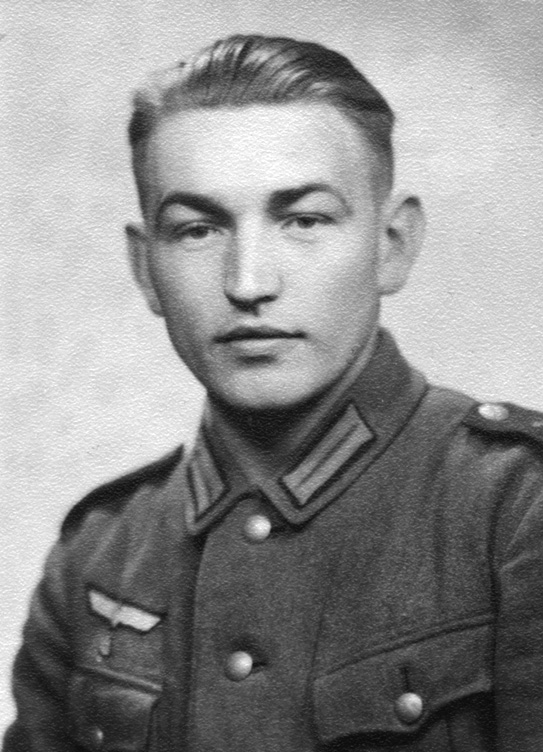
Rosstal, July 4, 1939
Dear Mädi [Karl’s girlfriend, Helene “Mädi” Schoeppe, whom he met in Würzburg in 1938 and would later marry],
I’ve just spent some time improvising on the piano—Lehar of course. Should I bring along the sheet music of his operetta “Land of Smiles” when I see you tomorrow? I already know the answer to this question and do want to make you happy.
While I am writing, I’m sitting in our garden. Blossoming nature fills my joyful surroundings. All is so peaceful and serene. Fragrant rose bushes and the lush green of the garden encircle me. This rural peace at home is something very special, my dear Mädi. I am much happier here than in the hustle and bustle of city life. I hope you understand what I mean. Of course, I cannot do without the cultural programs and entertainment opportunities of the city; however, these are only secondary when compared to a walk through nature’s fields, meadows, and forests, particularly when this walk is taken arm-in-arm with the one you love. I hope that we can take another such outing soon.
Love, Korri [a pet name she gave to him]
October 1939 [a month after Germany’s invasion of Poland]
My dear Parents,
We’ve been at the Langwasser [Army] Training Camp [near Nürnberg] since Wednesday at noon. For the past two days I wanted to call you but was unable to get through to Rosstal. On Monday, however, a sizeable group of us will parade in front of Gauleiter Julius Streicher and then march through the entire downtown area of Nuremberg. We expect to have a day off on Saturday or Sunday and I will call you then. Hopefully we will be able to meet. I have met a lot of my old friends here and everything is fine. Heil Hitler!
Karl
Fall 1939
Dear Father,
A week has gone by and we’re now settled in at the military installation. The entire compound is superb! We have had our psychological examinations and, based on these tests, I was assigned as a tank gunner. Now, of course, we have to learn and train until we perfect all of our skills. Infantry training is almost behind us and in eight weeks we have to be fit for combat. You, as an old soldier, know best what this means. The intensity of training is tremendous and there is no rest for anyone. All of us are eager to make progress and no one complains, least of all your son. You won’t ever have to be ashamed of me; you can depend on me.
Several days ago I had to report to the captain of our company and speak to him about my plans for officer training. Today for the first time we had to practice pistol shooting—five shots and five bull’s-eyes for me! Next week we have training in shooting with rifles and machine guns. The recruits are looking forward to this training. All of us tank gunners need to be crack shots.
Next week we’ll be able to climb into our tanks for the first time. Operating the vehicle will have to become second nature to us. Tanks are really awesome!…
Sieg Heil and on to old England!
Your loyal son, Karl
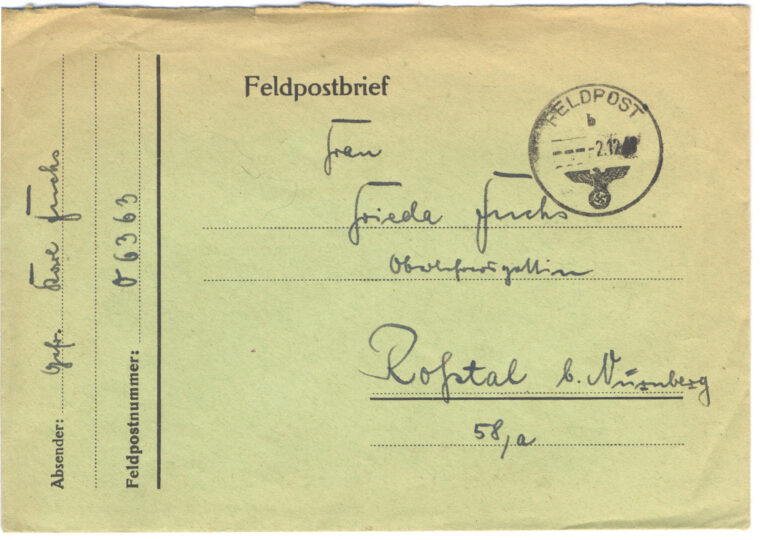
Bamberg Army Base, December 8, 1939
Dear Mother,
A cold wind is whistling outside our barracks today. Believe me, it’s no cakewalk to stand guard in this kind of weather from 7:00 until noon with full military uniform, steel helmet on your head, rifle ready and your cartridge belt and bayonet slung around your shoulder and hip.
Today is Wednesday and we were sworn in as soldiers. This was obviously a memorable experience for us, especially for me. While all the other comrades marched to the square where we were to be sworn in, another soldier and I were selected for a special task; we drove with a small tank [an obsolete Mark I] to a square and looked out from the turret with our eyes bright and hands saluting the officers. This was a tremendous honor for me and I will cherish it forever. That’s all for today. Heil Hitler!
Your son, Karl
Christmas 1939
Dear Father,
….What is uppermost in our minds this Christmas is adherence to duty to our beloved Führer and to our Fatherland to our last dying breath. May this sense of duty and a quiet handshake between us be our mutual Christmas greeting. Heil Hitler!
Your loyal son, Karl
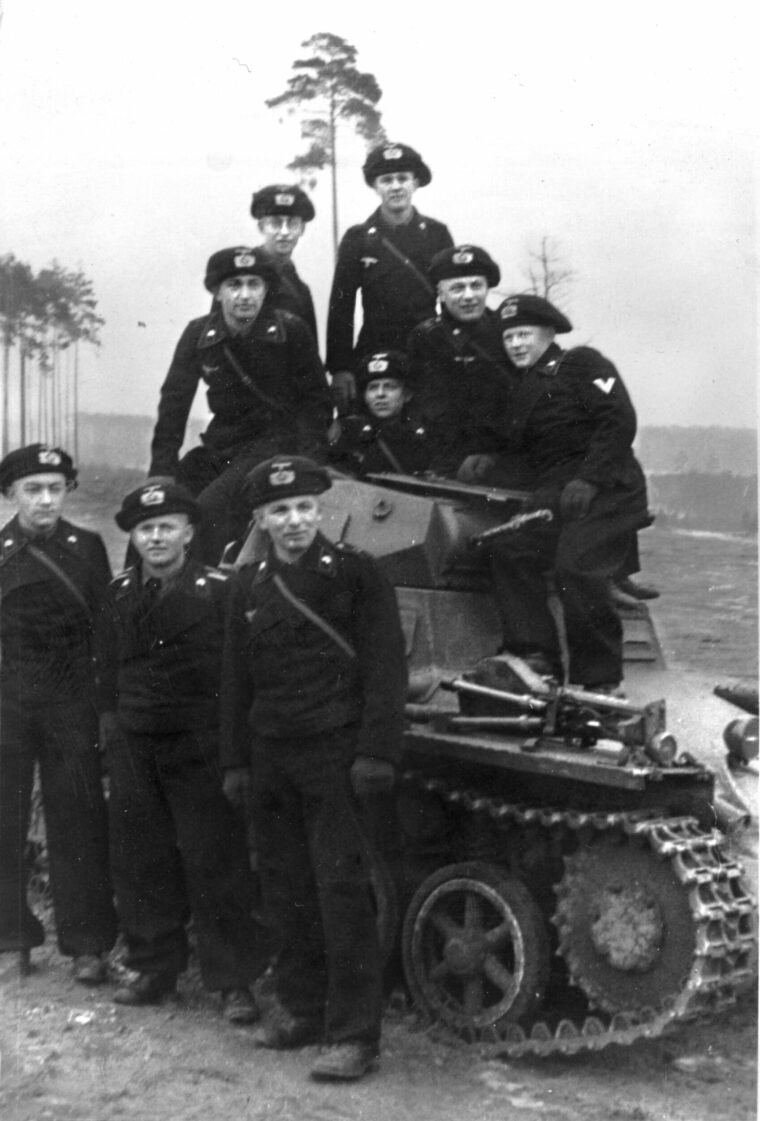
January 20, 1940
Dear Mädi,
It’s snowing outside; as a matter of fact, it’s snowing so much this winter that it seems like “old man winter” is trying to catch up with what he missed during last year! Even under this blanket of snow there is a promise of a new beginning, a promise of spring. Soon the snow will melt and underneath it, new, young life will sprout up.
What will the new time bring for us? We really don’t know but one thing is for sure: we will never lose the belief in our good fortune, no matter how difficult times will be in the future. All of us believe in a just victory and in peace. This peace will become a reality only if we fight for it. I don’t believe in this report about an imminent offer of peace [during the lull between the invasion of Poland and the invasion of Denmark, Norway, France, and the Low Countries known as the “Phony War”]. In my opinion, it’s no more than a rumor. Of course, many people would like to believe it and would be very relieved and happy if peace did come about soon. In the meantime, the struggle continues. We’ll fight to the end and must be victorious!
Love, Karl
Bamberg Army Base, February 9, 1940
Dear Father,
Today during inspection it was pretty cold; nevertheless, we performed our duties during inspection with great enthusiasm and were praised for our efforts and performance. It must have been a magnificent sight to see hundreds of tanks maneuvering in unison. All of us were dressed in black death’s-head uniforms for the very first time. It was a picture of unquestioned courage and military strength. We all hope we’ll be transferred to the front soon. That is our greatest wish!
It is understandable that our women don’t understand this wish. Well, that cannot matter. That is how the female soul functions. Women do not understand anything about the necessary struggle of a man and, in the final analysis, this must be the highest and noblest goal: a man must prove himself in battle. This battle is not only an individual struggle but also a struggle for our family as well as our German people.
Now to something very important. Mädi and I plan to marry at Easter time, but only if we can get an apartment by then. I hope this news doesn’t shock you and that you and Mother will approve….
For today and the future, a hearty Sieg Heil!
Your loyal son, Karl
[Author’s note: At this time Karl’s father Hans, a World War I veteran, was also on active duty with the Luftwaffe in Fürth.
Editor’s note: The Death’s Head insignia was traditional to Prussian cavalry, and German armored formations carried on the tradition. It should not be confused with the SS use of the Death’s Head insignia.]
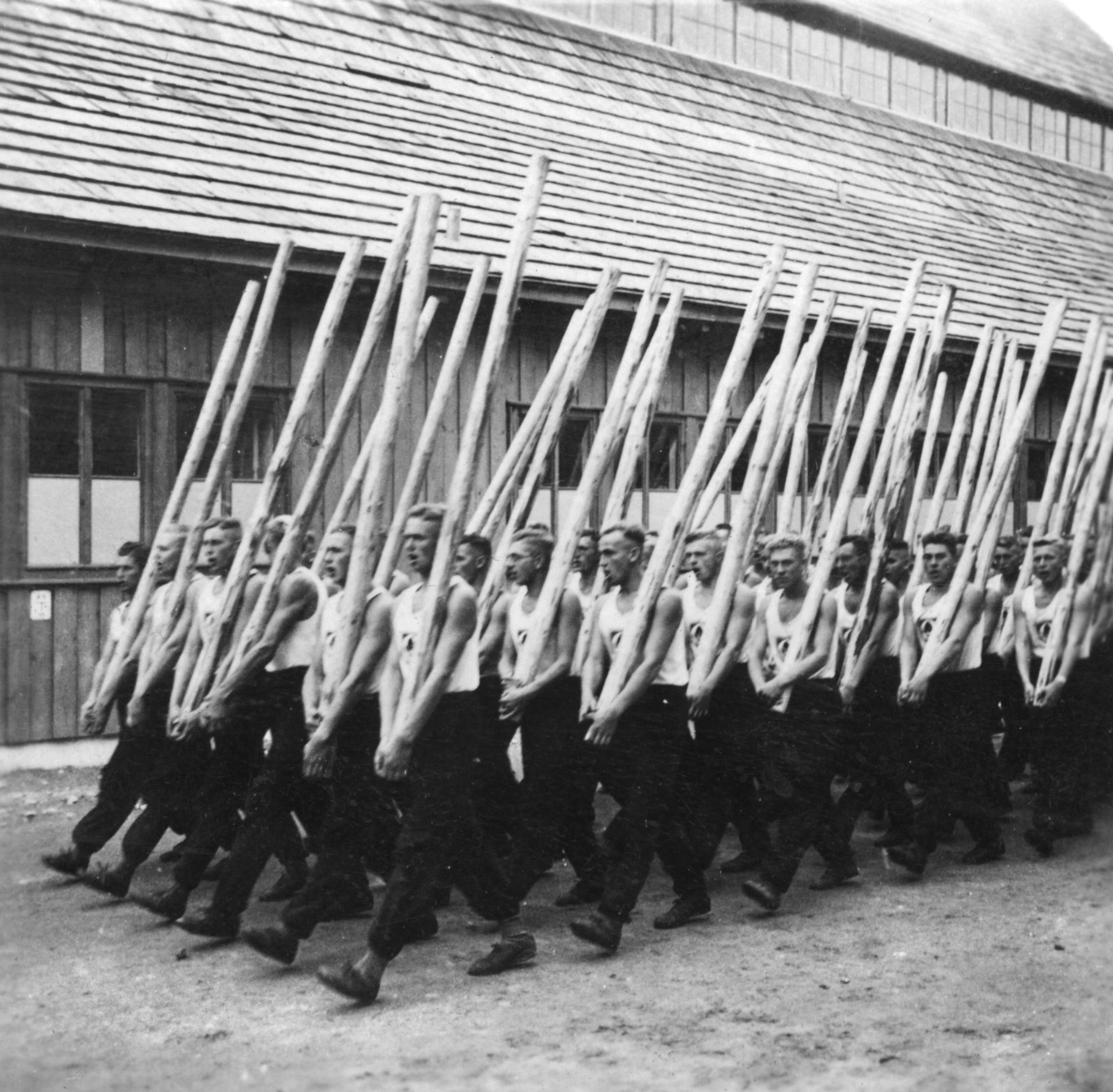
February 14, 1940
Dear Mother,
I received your parcel today and want to thank you for it…. Believe me, I can understand that you are sad now since Father has been transferred from Fürth, but you simply have to endure this hardship like a brave German woman. You wrote that your only wish is for peace and I, as your son, can understand this completely. I am sure other people are wishing for the very same thing. But whatever must be, must be….
Greetings from your son, Karl
April 1, 1940
My dear Parents,
This morning we moved our quarters. All of us officer candidates are together now and in a few days we’ll be the only ones left in our company. It was a wonderful day! Outside the sun was shining brightly and almost the entire day was spent buzzing around in our tanks. Great!
In the next weeks we are going to be taught to drive practically every kind of vehicle there is in the army and I will get a driver’s license. I guess that’s important since I want to drive you around the countryside once I’m out of the army….
Now it’s time to hit the sack. In my thoughts I am with you.
Your thankful son, Karl
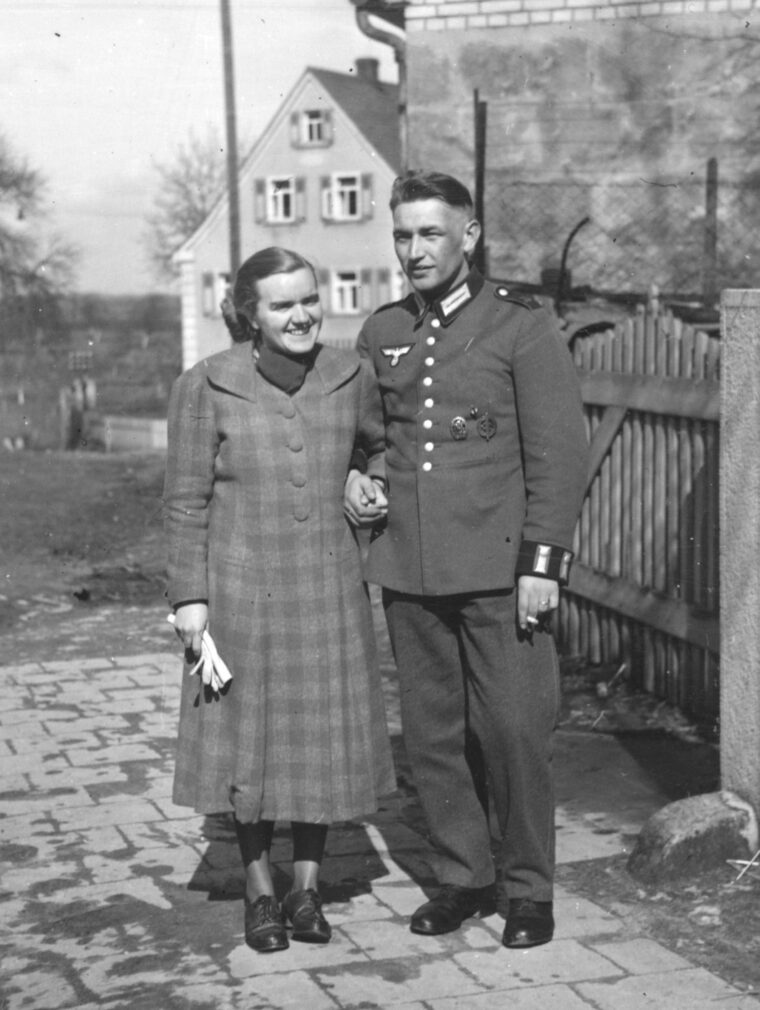
April 9, 1940
Dear Father,
What a day! What enthusiasm everywhere! German troops have marched into Denmark and Norway! What a depressing feeling that must be for those gentlemen in London and Paris. The “Huns” have done it again in good German style.
And what are we doing here? We’re sitting around at home like corralled horses and can only watch our comrades do our job. Believe me, many of us are becoming angry. We firmly believe, though, that our turn will come….
Your loyal son, Karl
[Author’s note: In mid-April 1940, Karl and Mädi were married.]
Bamberg Army Base, May 5, 1940
Dear Father,
After the wedding festivities I returned to the routine here at the base. Slowly but surely I’m becoming upset with the daily routine here and would like to get out and fight at the front. My comrades and I don’t want to spend our entire military careers here conducting dull training exercises. My God, we would like to accomplish something! We are tired of play-acting and are full of enthusiasm for battle. We didn’t become soldiers to be treated like idiots. We should do something other than drill and instruction.
All of these personal gripes become insignificant, though, when we hear news of victory at the front. Isn’t it incredible what our troops, especially the Air Force, are achieving? Let me just mention the recent sinking of a British battleship with only one bomb! I feel sorry for the English, don’t you? Slowly but surely they are getting the picture over there on their island. I certainly wouldn’t have wanted to be on that battleship. In the future people will say that the English rule the waves, but the Germans rule the air and control whatever happens to be floating in the water!
I’m anxious to find out how things are going to develop in the south. I think the Balkan powder keg will explode soon and if it does, England will certainly feel it too. I guess for us there is only one goal in this battle—to beat England on the water, on the land and, above all, in the air….
Well, that’s enough for today. Let me greet you with our old battle cry: Germany, Sieg Heil!
Your loyal son, Karl
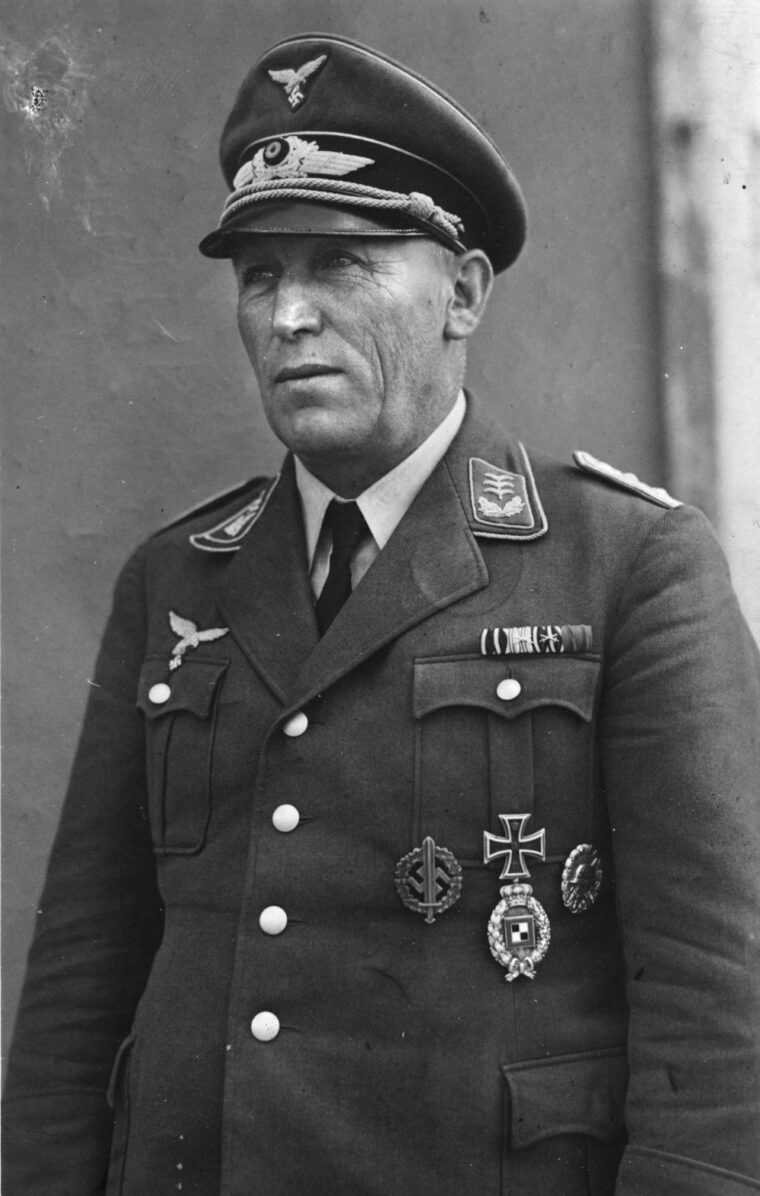
Bamberg Army Base, May 19, 1940
[nine days after Germany’s invasion of the West]
Dear Mädi,
I just heard the imposing sounds of the Englandlied [“The England Song,” a patriotic German song from World War I] over the radio. The whole base is excited. German soldiers have taken Saint Quentin [northeast France, between Paris and Brussels]! The German army is before the gates of Paris! It is wonderful what our soldiers are achieving! It is as if the old Teutonic spirit and the old strength of our forefathers are with them. Friedrich Barbarossa has arisen! He is with us in our fight against our archenemy. He leads us on to greater victories and soon to peace. And this Friedrich Barbarossa is none other than our Führer Adolf Hitler!
Love, Korri
May 25, 1940
Dear Mädi,
Another Sunday. There’s light rain and a breeze coming from the West…. And what do you think of yesterday? It certainly was an eventful day for Germany. German paratroopers landed on the island of Crete! There was also a sea battle off the coast of Iceland and we sank one of the biggest battleships in the world [theGerman battleship Bismarck sank the British battlecruiser HMS Hood]. Splendid––indeed, splendid! That, my dear, is the German military spirit. Can you understand that all of us here sit around with tears in our eyes because we have to watch these heroic deeds from afar! We’re sitting here in the Fatherland and feel like incompetent idiots!….
Love, Korri
Erlangen Army Base, June 2, 1940
Dear Father,
We haven’t heard anything from you in such a long time that we have reason to be worried. Mother, in particular, is ill at ease. Yesterday Mädi sent me the letter which you had mailed to her. At least now I have a military postal number and can write to you. [Author’s note: Hans Fuchs’ unit provided communications for the Luftwaffe during the advance across France.]
From your letter it becomes evident that you were in the midst of things and that you once again saw all those battlefields which were so familiar to you from the Great War, battlefields which evoke German heroism and manliness. You were part of all the activity and I, your son, must sit here at home at the army base and wait.
Dear Father, believe me, an incredible anger and sadness has gotten hold of us here. Have we not completed our course work? I was transferred with two comrades to Tank Regiment 25 in Erlangen. It was explained to us officer candidates that all of us had to remain here and would not be sent to the front after all. This command, presumably, came right from the top. We tried everything to change their minds, but nothing helped.
We had to stay, and they tried to appease us by telling us that we would certainly be part of the transport to the front. This is supposed to be in eight weeks. Can you believe it? Naturally, we want to try everything we can do to get to the front and fight, but nothing seems to help. I almost don’t dare to come home anymore because I am so ashamed…. [T]he war will be over without any of us having fired a shot. Father, if anyone tags me a coward, I could not live with the shame!
My only pleasures in life are Mädi’s visits. Father, she has become a dear friend and we understand each other so well since the wedding….
Your sad son, Karl
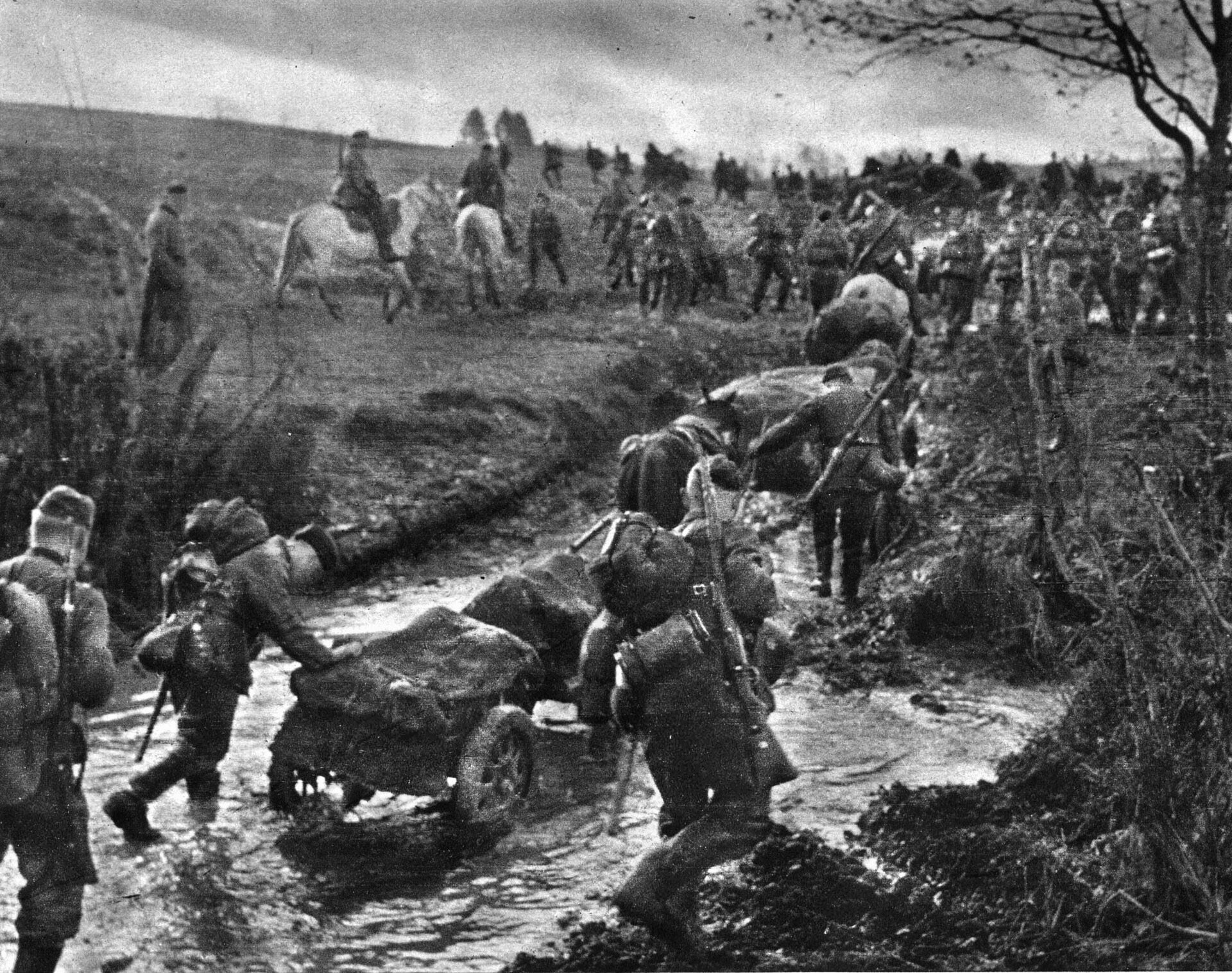
Erlangen Army Base, June 5, 1940
My dear Mother,
I must tell you something that will probably cause you great pain but that can’t be helped. Next Monday, June 10th, I’m off to the front. I am looking forward to it; otherwise I wouldn’t be a German. Just look at my brave comrades who have fought all this time, who have put their lives on the line for our Fatherland and our Führer. The first battle [Poland] has taken place and ended in glorious victory. This current battle [France] has been raging for only a short time; yet these foreign culprits refused the peace offerings of our Führer. In a few weeks this struggle will also come to a victorious conclusion and in the fall the war will be over.
I know how difficult it is for you, Mother, and it also is hard on my young wife. You must understand that you women have to be as brave as those of us at the front. I know that I will return and there will be no more beautiful reunion than the one we will experience in peacetime….
All of us are ready to march. We have received new gear and new uniforms and things couldn’t be better. Please say hello to all my friends in town…. Tell them I didn’t have time to write to all of them. You, dear Mother, think of me when I am out there on the front fighting and be certain that I will always honor you as my good Mother.
Your loyal son, Karl
[Author’s note: The order for Karl’s unit to move out was cancelled several days later.]
Erlangen Army Base, June 12, 1940
My dear Mädi,
Are you listening to the radio? I just heard an announcement about the latest German victory. German troops are only 20 kilometers from Paris!! Of course, we aren’t part of this and it looks like we’re going to be too late anyway. You, my dear, must be happy and glad since you don’t have to fear for my safety. Yes, the biggest victory has taken place! France has capitulated and peace is at hand. Don’t worry, Mädi, because it doesn’t look like we’ll be called upon to fight….
I firmly believe that this year we will celebrate the most fantastic [Nazi] Party rally ever and perhaps by then I’ll be out of the army. Who would have thought it? God in heaven led our magnificent Führer and our brave and loyal soldiers. Are you glad I’m not in danger? I am somewhat saddened that I wasn’t involved at all. Fate apparently ordered that I should be with you. I just hope no one will call me a coward. I rejoice with you and the entire German nation. To our Führer a Sieg Heil!
Your Karl
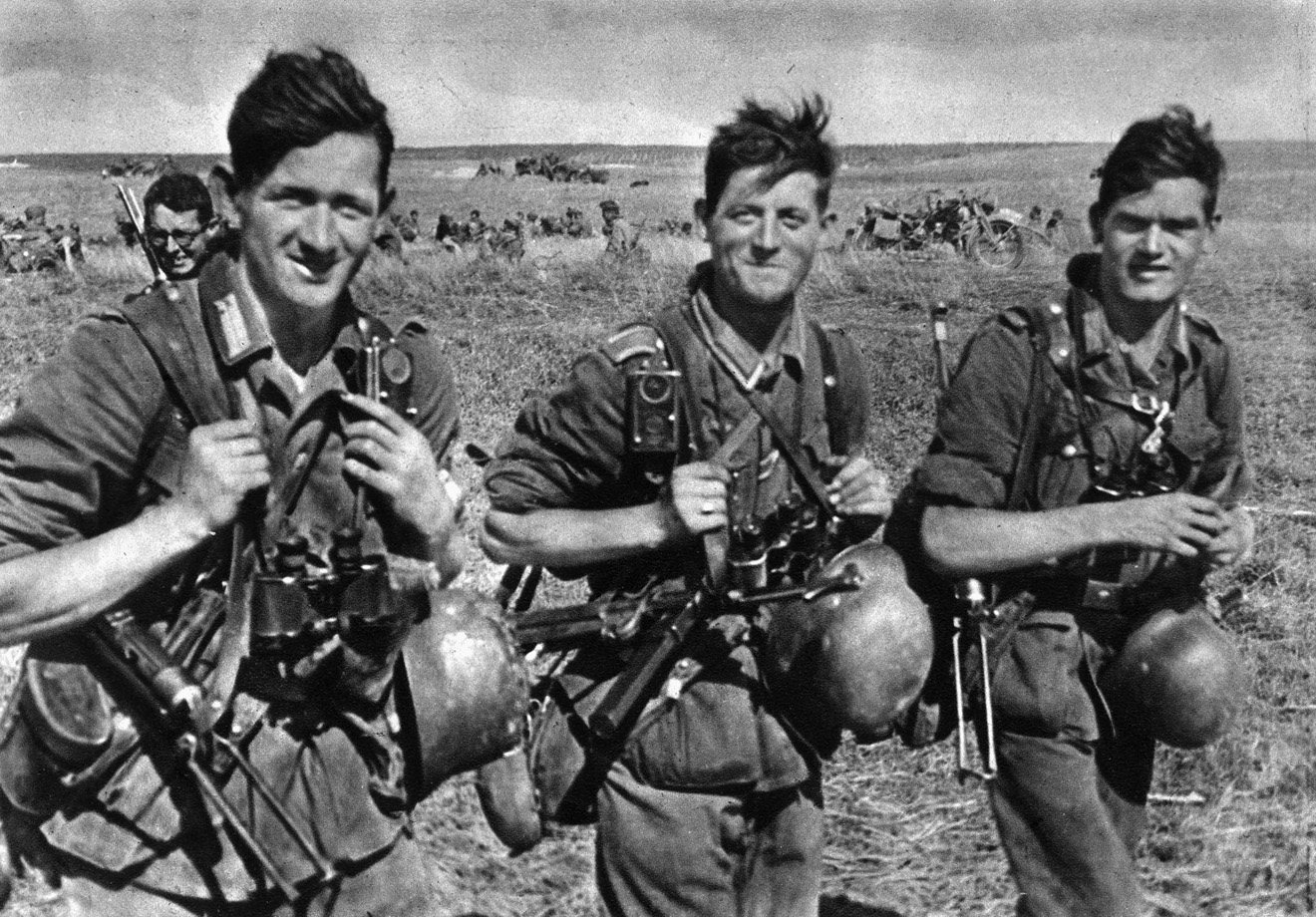
Erlangen Army Base, June 20, 1940
Dear Father,
You could be proud of your only son if he had been part of Germany’s most magnificent victories. Several weeks ago I told you that it was finally our turn to go to the front, but now nothing came of it. On June 10 our march unit went to the front but without us. Orders from headquarters: All officer candidates have to remain here!! This time we weren’t disappointed but enraged!
We ran from officer to officer and finally to the commander, explaining to them that we would renounce all claims to becoming officers if only we got to go. All of our attempts were in vain. While we told them that we wanted to volunteer for the paratroopers, they asked us, “Gentlemen, aren’t you proud of your tank unit?” Obviously, they were trying to call upon our loyalty. Apparently our division is in dire need of young officers, much more so than any other division. We have become pessimists and believe that we will never get to the front––not even to take revenge on England.
Oh, Father, had I listened to you and gone into the Air Force, I would have been part of the action long ago. I am ashamed in front of you and all my comrades. You are a part of the action and I, the son of an old soldier, am banished to the hinterland. The war will be over and I won’t have had a chance to do anything for our Führer or for our Fatherland. Perhaps my chance is yet to come. Please write and console me.
Your sad son, Karl
[Author’s note: Karl’s fervent wishes to see combat finally came true when his unit was ordered to take part in the huge surprise invasion of the Soviet Union in June 1941, known as Operation Barbarossa. Karl was now a member of the 7th Panzer Division (part of the 39th Panzer Corps, an element of Army Group Center’s Panzergruppe 3) from the Bonn area.]
On the move to the East, June 12, 1941
Dearest Mädi,
By now our child has, no doubt, been born. If I only knew how you are feeling and whether it’s a boy or girl….
The departure from our army base where we’ve been stationed so long was a real ceremony and very uplifting. We pulled out of there with our tanks decorated with flowers! The townspeople had given us many small presents and were very nice to us. That was several days ago….
Since we are having such terrible weather all of a sudden, wind, rain, and cold, I’m freezing! But since we’re soldiers, that’s not supposed to bother us….
Your Korri
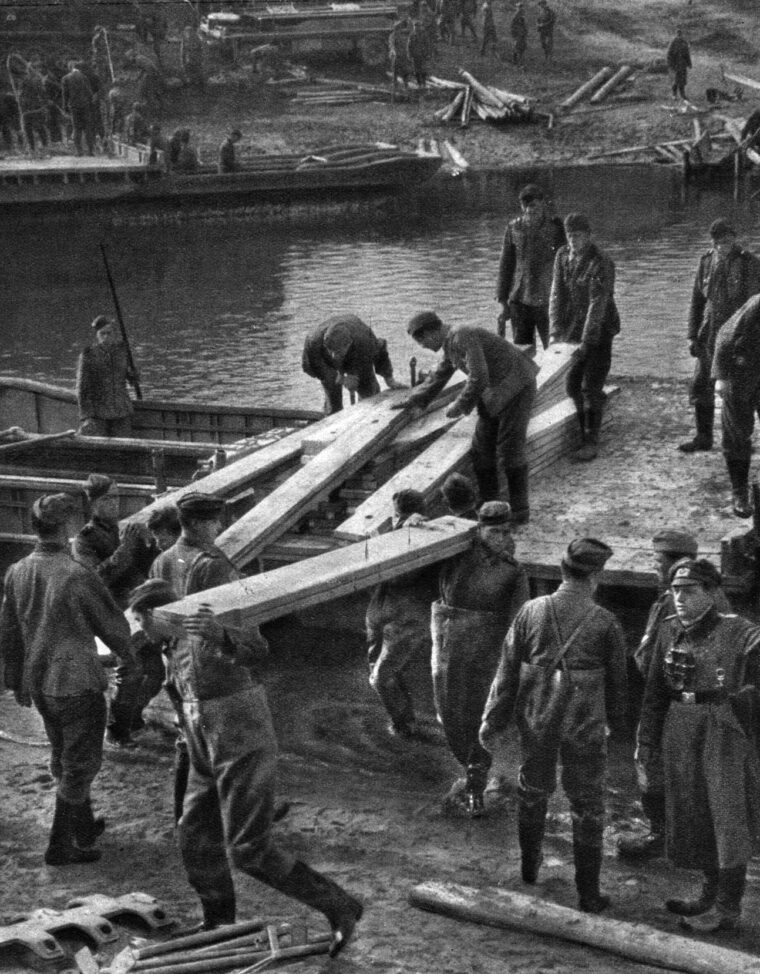
Eastern Front, Lithuania, June 25, 1941
Dearly beloved Mädi,
Today was a day of pride for us all! Victoriously we marched into Vilnius [Lithuania], cheered on by the jubilant citizens. Yesterday I knocked off a Russian tank, as I had done two days ago! If I get in another attack, I’ll receive my first battle stripes. War is half as bad as it sounds and one thing is plain as day: The Russians are fleeing everywhere and we follow them. All of us believe in an early victory!…
Kiss my dear son Horsti [diminutive for Horst] for me.
Your Papi
Eastern Front, Russia, June 28, 1941
My dearest wife, my dear little Horsti,
After three days of heavy fighting, we were finally granted a well-deserved day of rest. Unfortunately, there is maintenance work to be done….
…Today I received my first war decoration from our commander, namely, the tank assault medal. I wear it proudly and hope you are proud of me.
Up to now, all of the troops have had to accomplish quite a bit. The same goes for our machines and tanks. But, nevertheless, we’re going to show those Bolshevik bums who’s who around here! They fight like hired hands––not like soldiers, no matter if they are men, women, or children on the front lines. They’re all no better than a bunch of scoundrels…. Europe stands under the leadership of our beloved Führer Adolf Hitler, and he’ll reshape it for a better future….
Your Korri
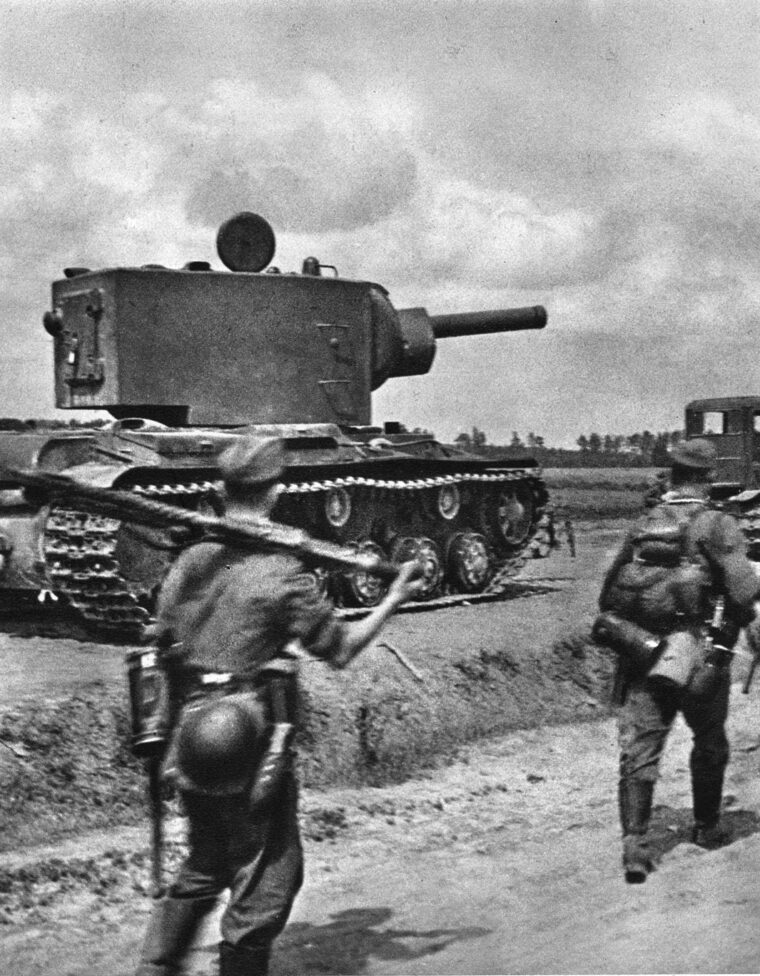
Eastern Front, Russia, July 5, 1941
My darling wife, my dear boy,
We have fought in battle many days now and we have defeated the enemy wherever we have encountered him. Let me tell you that Russia is nothing but misery, poverty, and depravity! That is Bolshevism!…
Our losses have been minimal and our success is great. This war will be over soon, because we are fighting against only fragmented opposition….
Intimate kisses to you, Papi
Eastern Front, Russia, July 11, 1941
My dearest wife, my dear little Horsti,
Today our united forces captured the Russian city of Vitebsk. It is a large city and has been totally destroyed…. Now we are only several hundred kilometers away from Moscow, and I’m certain that we will soon be in the enemy’s capital.
At any rate, these Russian dogs are now on the run. Sometimes I’m tempted to feel sorry for them because many of the soldiers are young boys, hardly 16 or 17 years old. But you can’t afford to have pity on them…. If I only had some water to wash myself!…
Your Korri
Smolensk, Russia, July 15, 1941
Dearest darling, my dear little boy,
For the first time in a long time I have had a chance to take a bath. That was a marvelous, refreshing feeling! My entire body felt like it had been reborn….
We are now positioned outside the city of Smolensk and have penetrated the highly acclaimed Stalin lines. I would imagine that within eight to ten days this campaign will be over. Yes, you can be proud of the German soldiers and the military accomplishments of our men….
Your Korri
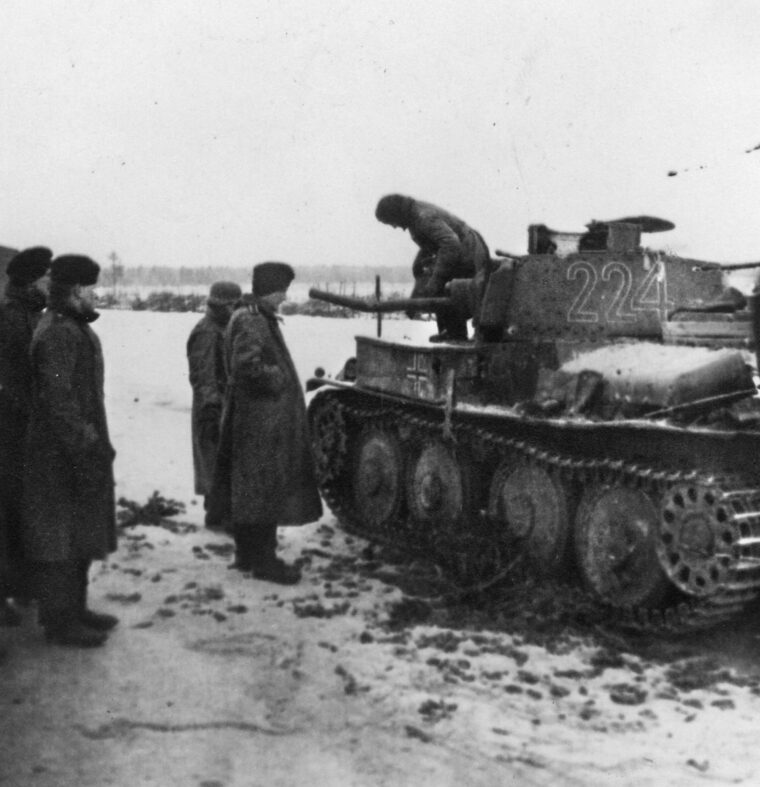
Eastern Front, September 17, 1941
Dearest Mädi,
My hands are so cold that I can hardly write. Thank God we’re on the move again and about to camp at another location. I can tell you that the roads are in terrible condition. There’s mud everywhere and the rain doesn’t seem to want to stop. Horses would probably be of more use to us now than vehicles. Sometimes we have to make new roads by simply driving across the countryside. But everywhere you go, you slip and slide and get stuck….
Your Korri
Eastern Front, October 9, 1941
My dearest Mädi, my dear little boy,
I’m sure that you must have heard the special radio announcements about our battle achievements. Yes, you can find me somewhere on this front near Moscow! The Russians didn’t believe that we would attack at this time of the year when the cold weather is setting in. They probably thought that we would give them a recuperative period until next year.
The last hour of Bolshevism is near and that means that Old England’s destruction is imminent. You can hear on that island now the same desperate cries which once were uttered in ancient Rome: “Germani ante portas” [“Germans at the gates!”], and this time it’s Adolf Hitler who is standing before the gates….
For the time being, we are resting in a Russian blockhouse. Since it is terribly cold and unfriendly outside, we have no choice but to move inside and fight it out with the lice. Don’t be afraid when I come home in a few weeks, my darling, I won’t bring any of these bugs along. The only thing I’ll bring is myself….
In two days our child will be four months old. In these four months I have been separated from you and have been with you only in my thoughts. All of us believe and trust the words of the Führer in his great speech. Indeed, the last decisive battle stands before us. Soon I will be home to hug and kiss you and then I will finally hold my baby boy in my arms.
Your Korri
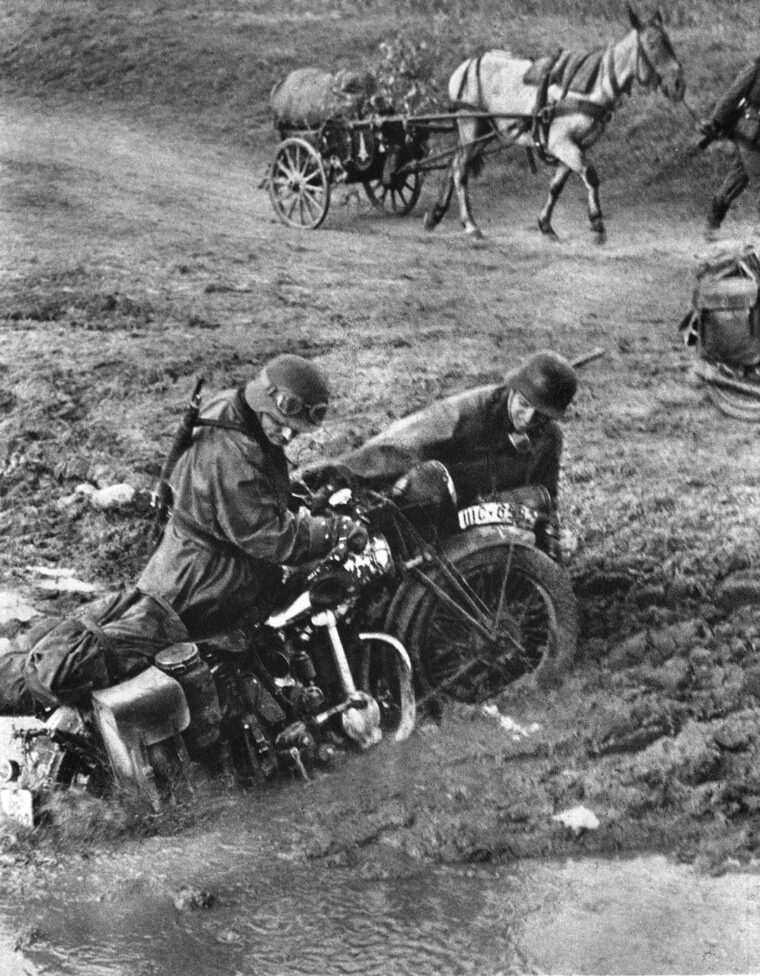
Vyazma, Russia, October 12, 1941
Dear Father,
You must have heard the special announcement about Vyazma. Yes, you can find me here. I almost think that this battle is the last flickering moment of a once-powerful Russia. For days now the enemy has tried to break our iron encirclement, but their efforts have been in vain. Whenever there is a hot spot, we appear like ghosts and engage the enemy in battle.
Yesterday must have been our company’s proudest day in this campaign. The alarm sounded and our tanks moved out! Russian tanks reinforced with support troops wanted to break out of our ring. My unit (and I’m its temporary commander) was assigned the task of scouting the opposition. Visibility was low because of ground fog. We moved four tanks into an advantageous position.
Suddenly three heavy [KV-1] Russian tanks, big as battleships, appeared out of the fog to the right of us. We opened fire immediately, but these tanks had enormous armor plating. If they had known that only four tiny scout tanks were opposing them! But here as well, courage and audacity brought us victory. Two of their tanks were burning and the third pulled away.
Once the fog lifted from the valley, we really let them have it with every barrel. Tanks, antiaircraft guns, trucks, and the infantry fired on everything in sight. Once the main body of our company arrived, our comrades destroyed their remaining forces. Proud and satisfied, our company commander smiled at us while our eyes were still flashing. We had no losses at all. My cap, though, had a five-centimeter tear in it, due to a splinter.
In the evening, civilians helped us reload our machine guns. You cannot imagine how glad they were to have been freed of Bolshevism. You can see that we are prepared at all times to beat the enemy wherever he may appear!
Germany, Sieg Heil!
Your loyal son, Karl
Eastern Front, October 15, 1941
My dearest Darling! My boy!
It is snowing and a carpet of pure white covers the earth, the earth which has drunk so much red blood. My brave, young friend Roland just died of severe wounds. Why did he have to give his life now, with the end practically in sight? We hardhearted soldiers have no time to bemoan his fate. We tie down our helmets and think of revenge, revenge for our dead comrades.
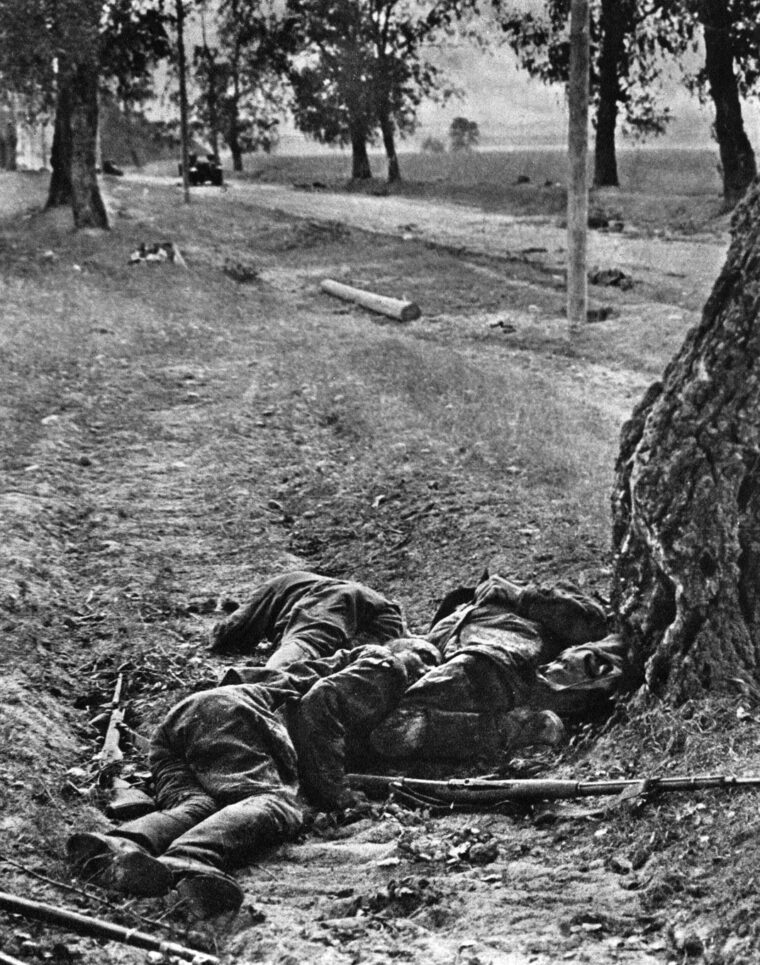
The battle of Vyasma is over and the last elite troops of the Bolsheviks have been destroyed. I will never forget my impressions of this destruction. From now on, their opposition will not be comparable to the previous encounters. All we have to do now is roll on, for the opposition will be minor.
But that’s enough talk about war. Let’s talk about tomorrow, about the future, which hopefully will bring an early peace….
Korri
Eastern Front, October 15, 1941
My dear Mother,
While a terrible snowstorm is howling outside, my comrades and I are camping in one of these terrible peasant houses. Although it’s not much of a home, we managed to clean it up yesterday. Up until now we’ve always preferred to dig a hole in the ground and maybe pitch a tent. Now, however, it’s simply too cold outside. If you could see how these people live here, you would be horrified!
This present abode is in better shape than most. In one corner there is even a structure that looks like a bed. Most Russians don’t sleep in beds, but either behind or on top of their stove. I won’t describe the other facilities, such as water and sanitation. Suffice it to say that they hardly exist.
Our duty has been to fight and to free the world from this Communist disease. One day, many years hence, the world will thank the Germans and our beloved Führer for our victories here in Russia. Those of us who took part in this liberation battle can look back on those days with pride and infinite joy….
Your son, Karl
Eastern Front, October 20, 1941
My dearest Darling, my little happy boy,
…It has been raining again and an unexpected thaw has set in. The formerly white cover of snow has turned dirty brown, and mud and slush are everywhere. We drive our vehicles across the fields and leave deep furrows behind. Frequently the vehicles slip and slide and even get stuck.
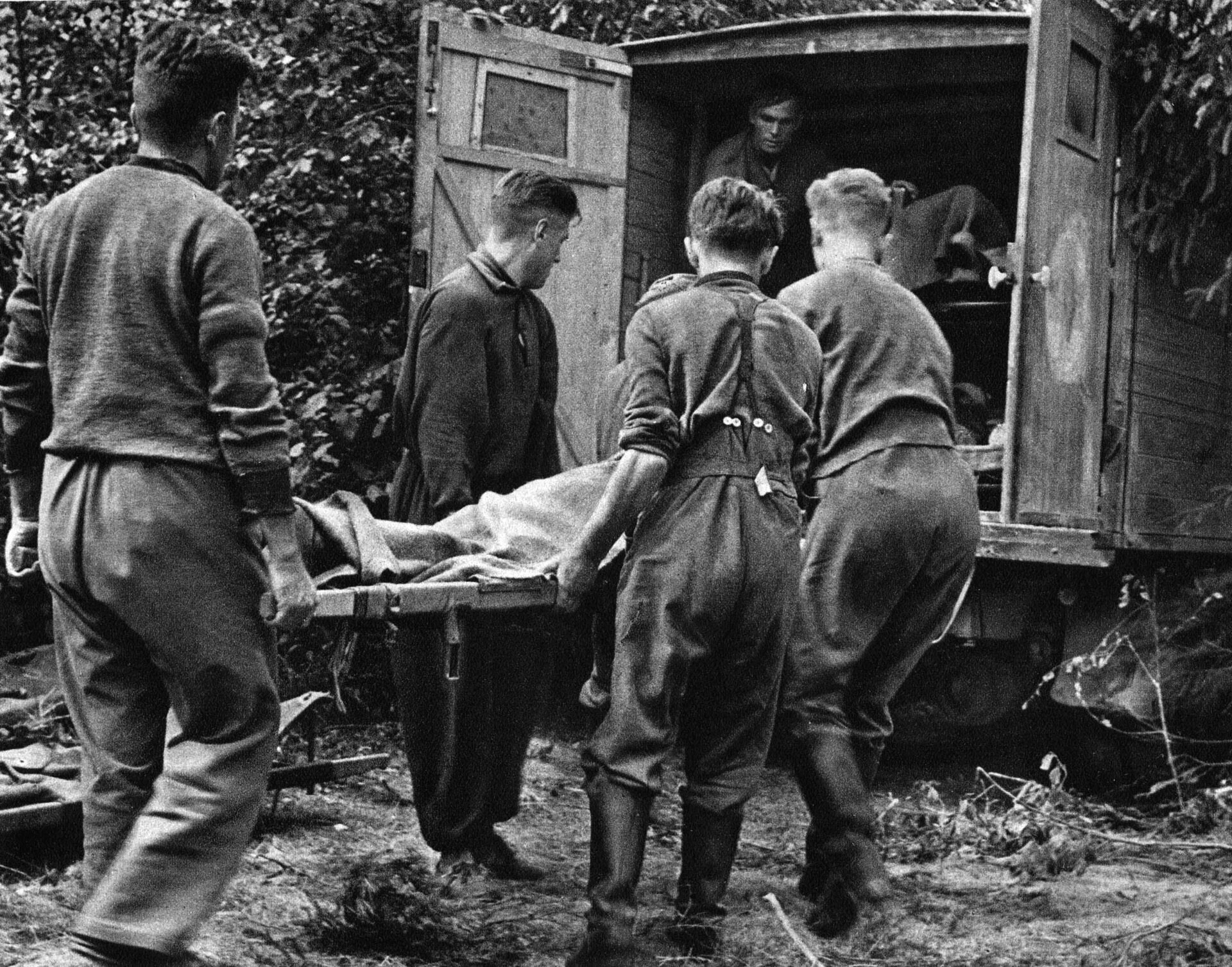
We have lost all sense of time and don’t know what day it is or what time it is. The early gray of the morning, which penetrates through the small windows of our bunker, indicates the coming of a new day, and the dusk that seems to settle in soon thereafter heralds the coming night. This cycle seems to be an endless one. In between the changes is an endless monotony. The landscape here is bleak and desolate.
If we weren’t here to fight and were only here to live—I mean, to exist here—we would become imbeciles. Now that we have been here for some time and have had a chance to become acquainted with this land, we all of a sudden understand why it was an easy thing for the Communist agitators to systematically poison these people….
We Germans can hardly breathe in this atmosphere. Their houses are oppressive. Certainly we couldn’t live here. And the lice are terrible….
Love and kisses, Korri
Eastern Front, October 26, 1941
Dearest Mädi, little Horsti,
I’m enjoying the taste of one of those excellent Nestor cigarettes that you sent me. Thank you very much. Yes, it’s Sunday again, but don’t ask what the weather is like. Rain, rain, nothing but rain! The countryside looks like an endless gray swamp. The roads, at least what’s left of them, have become totally impassable. Even walking has become a feat. It is very difficult to stay on your feet—that’s how slippery it is.
As each day passes we’re becoming more and more conscious of Christmas. I suppose we will have to celebrate Christmas out here in soldier fashion, because we no longer believe that we will be able to spend this festival of peace with our loved ones at home. But, look, dear Mädi, we really have no reason to complain when we think of our comrades who are at the front stuck in mud, water, and terrible conditions and, nevertheless, ready to beat back the last possible attack of the Russians. They are even ready to pursue them with a quick counterattack.
A great friendship binds us German soldiers together out here. It is this camaraderie and the support that we’re able to give each other that is, in my opinion, the secret behind our incredible successes and victories. This loyalty and devotion to the cause again and again was the decisive factor in many a battle and, I tell you, this comradeship has been one of the most magnificent experiences out here.
This loyalty is the essence of the German fighting spirit. We can depend on each other unconditionally. Each one of us sets the example for the other and that makes us strong. I’ve always known of this loyalty, but today it burns in me like a holy flame. Let this loyalty which I’ve experienced out here in comradeship be the foundation of our future life….
Mädi, you are my one and only love and my heart belongs to you always. I hug and kiss you.
Your Korri
Report on the Defensive Battle of Vyazma, November 1, 1941
Written by Sergeant Karl Fuchs
The encircling movement of our troops around the area of Vyazma [about 130 miles west of Moscow on the highway to Smolensk] had been completed. Our fall offensive, conducted with lightning speed, surprised the Russians so much that the enemy found no time to break out of the encirclement.
Our tank company had been assigned to support a motorized battalion which occupied the ridges to the west of Vyazma. This battalion held the ridges with great tenacity. On October 11, 1941, an early dawn alarm robbed us of our sleep. Once again the Russians were attempting to break out of the encirclement by attacking the infantry battalion. Within minutes our tanks were on the move and pushed across meadows and fields and through the underbrush toward the danger area.
Enemy tanks were sighted. The Second Platoon [Karl’s unit] was given the job of reconnoitering. The ridges occupied by our infantrymen were under heavy artillery and machine-gun fire. We were in radio contact with the infantry unit and slowly and carefully, like hunters stalking their prey, we moved toward the ridge. A thick ground fog limited our visibility considerably.
Suddenly out of the fog to the right of us a huge Russian tank appeared. Damn the fog! We had hardly sighted this monster before it disappeared again like a ghost into the white curtain of fog. At least we knew the direction in which it was moving.
Carefully we pursued the monster. Suddenly a gust of wind ripped apart the fog and there it was. Immediately we opened fire, attacking it from several different directions. Clearly we could see our hits, but the monster seemed unharmed.
We radioed to headquarters: Engaged in battle with heavy Russian tanks! Two of the Russian tanks turned away from our fire and disappeared into a little valley. The last one became the target of our concentrated fire. Again and again we hit its steel armor until it, too, turned and fled.
The sun then broke through the fog and the valley was in clear view before us. From our advantageous position on the slope we continued attacking the enemy tanks until these monsters were either burning or left abandoned by their crew. Seven tanks were destroyed or had been inactivated. We changed our position in order to be a different target for the enemy’s artillery fire.
It also deceived the enemy about our relative strength. If they had known that there were only four of us which prevented the escape of seven of them! Our cannons silenced them.
The rest of the company arrived. Our collective firepower destroyed the last elements of enemy resistance. A truck convoy stood ablaze. The crews from eight heavy pieces of artillery, as well as an uncounted number of infantrymen, ran for their lives. Our infantrymen greeted us with open arms. The entire company gathered together and were ready for new orders.
(Signed) Fuchs
Eastern Front, November 4, 1941
Dear Father,
Your letter which arrived today must have been on a real odyssey since it took the letter six weeks to get here. But at least I have news of you. My assumption that you were in the battle area around Kiev was true after all. I guess you have searched in vain for me as well but it seems as if the two of us are competing for bigger and bigger achievements.
Our last battle of encirclement against the enemy up here and your experiences in Kiev will never be forgotten. We have never before struck the enemy with such crushing defeats. I guess the Russians never dreamed that we would engage in this kind of an offensive prior to winter. I’m convinced that the last cohesive forces of the enemy have been decimated and once again our Führer has proven to the world that the German soldier can do incredible tasks.
In the quiet evening hours we often think of those comrades who have given their lives for our sacred German cause. You’re right, Father, we will never forget them––especially not my best friend, Lieutenant Preussner, with whom I had shared so much joy and sorrow for over two years. The cool earth covers him now but he lives on in me just as your friend Eckstein lives on in you. I’m struck by the similarities and repetitions that take place in our respective lives.
I assume that you will be home much sooner than I. Please greet my son for me and make sure that everything is all right. In the meantime, we stand guard. Let me shake your hand and Sieg Heil!
Your loyal son, Karl
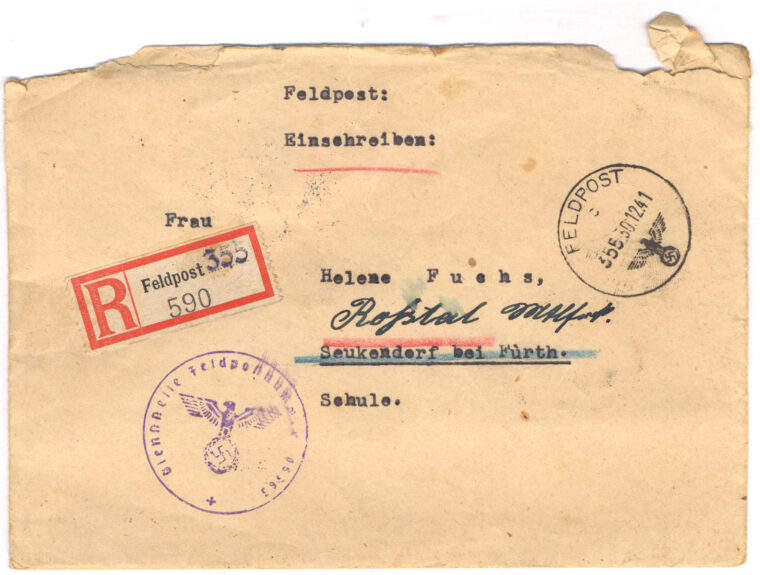
Eastern Front, November 6, 1941
Dear Father,
Yes, we’re moving out again. In spite of the terrible cold and snow, our unit has been called up again. At least we know now for sure that we won’t be spending Christmas at home. Somewhere in the north here we will find a little Christmas tree and celebrate Christmas with comrades. We know what our duty is and will be up to the task.
Don’t bother looking for me. Suffice it to say that we’re moving in the direction of Moscow. I suppose that you may even be home by now….
Mädi and Mother sent me a few pictures of my son. Damn it all, I’d really like to see him soon, but I suppose that I’m in the same situation now that you were during the Great War. We have to suppress our longing for our loved ones because we’re fighting for a great cause. I enjoyed hearing about your adventures. Yes, we too are familiar with the partisans and have dealt with them.
On to new deeds and victories! Sieg Heil.
Your loyal son, Karl
Eastern Front, November 11, 1941
My Dearest, my little boy,
Today is a very happy day for me. It’s almost as if I’m back in my childhood because I remember St. Nicholas Day and all the activities associated with it. Starting with St. Nicholas Day, the anticipation of Christmas grows real. I suppose St. Nick thought of me, a distant soldier today, since I received so many presents.
Dear Mädi, I really want to thank you for all the lovely gifts. Let me tell you what they are so that you know I received them; first of all, many thanks for the cigarettes…. Thank you also for the candy, the toothpaste, and the lotion, the woolen gloves and the woolen scarf. I can really use the two last items now.
Yes, here I am again, sitting in one of those God-forsaken Russian peasant houses, supporting my head with my hand and thinking of you, our dear boy, and of all those loved ones back home who’ve been so good to me. And today, our boy is five months old. I can imagine that he has grown big and strong and is a very sweet baby.
All my comrades here continuously ask the all-important question––when, when are we going to be able to go home? I still can’t give you a definitive answer to that question. When I do return from these battles, I will probably come empty-handed, but my heart will be full of endless love for you and that is probably worth more than any present.
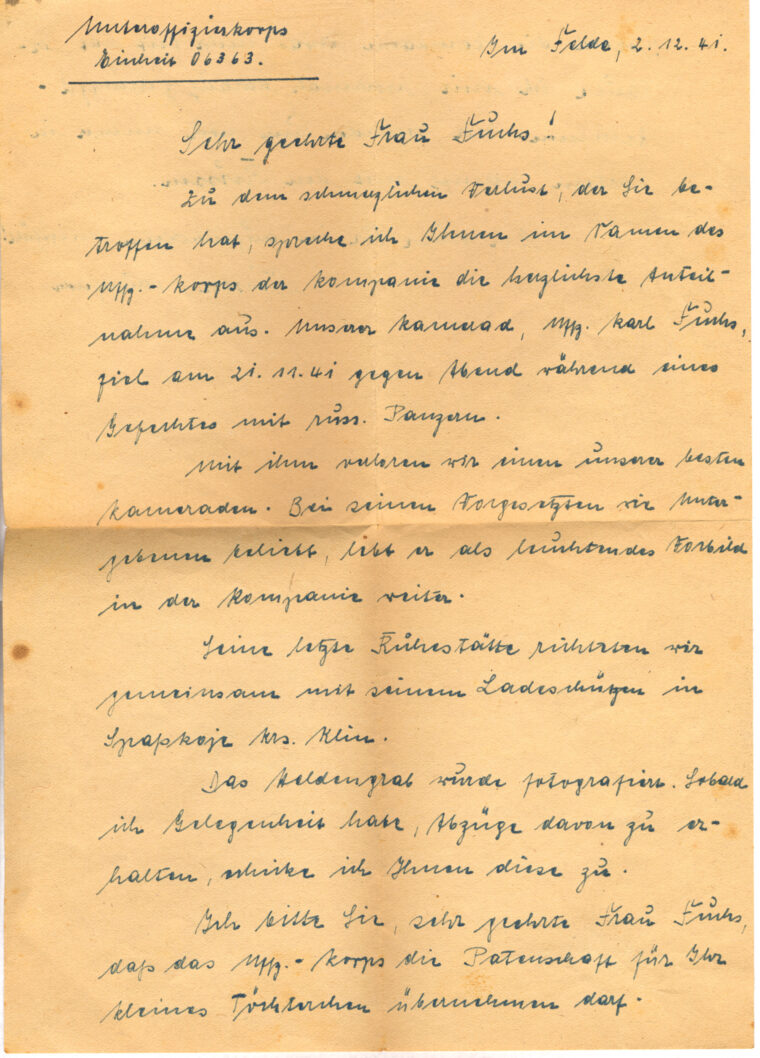
A few days ago it really started to get cold around here. It’s a gripping cold and not comparable to anything that we might experience at home. Yes, we really have to bite the bullet now, but we will survive this as well.
I love you forever—you alone and Horsti.
Your Korri
Eastern Front, November 12, 1941
My dear Mother,
Yesterday my son was five months old. You don’t know how often I think of him. Soon he will babble his first word, “Mama,” and maybe he’ll say “Papa” as well, and I, his father, am farther away from home than ever.
My plight today is similar to Father’s in the Great War. We men out here on the front know what our duty is and act accordingly. All of us have become serious and mature in this struggle for the future of our people.
If we don’t see our homeland by the end of this year and maybe not right away next year either, then we simply have to endure the disappointment because we know that this sacrifice must be made.
Our thoughts, wishes, and dreams fly to you at home, and when we men gather out here around a small Christmas tree in a few weeks, our eyes will be bright because we’ll know that our homeland and our loved ones can celebrate this feast in peace.
You at home must always keep in mind what would have happened if these hordes had overrun our Fatherland. The horror of this is unthinkable!
We know no fear. The cold is going to be a factor, but we shall endure that too. One of these days we will meet again and no one is looking forward to this more than I.
I send my greetings and remain forever your loyal son, Karl
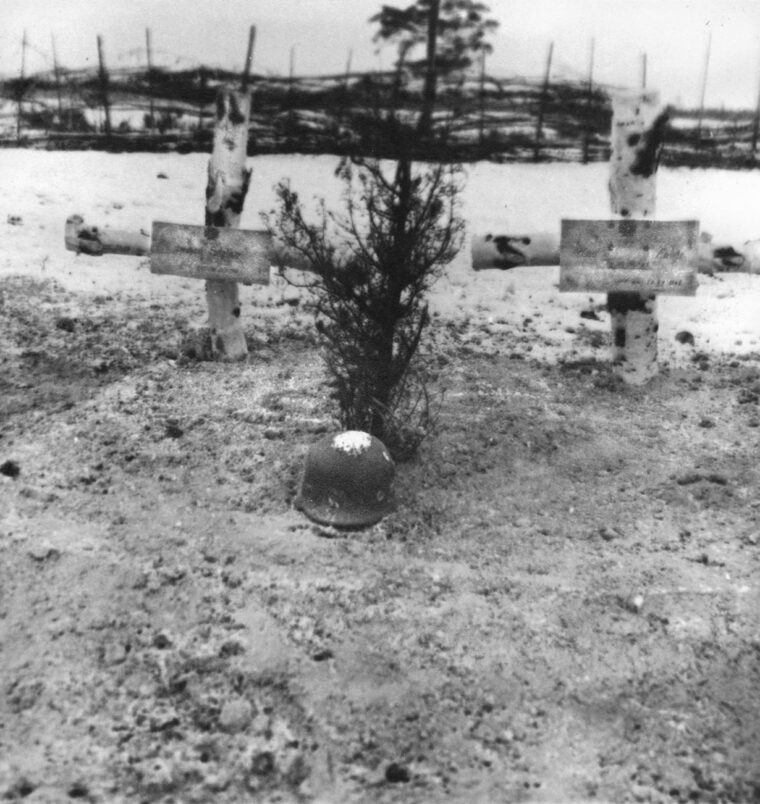
Eastern Front, December 2, 1941
My dear Mrs. Fuchs,
As leader of the unit to which your husband, Sergeant Karl Fuchs, was assigned, I have the sad duty to inform you that your husband was killed on the field of battle on November 21, 1941.
His heroic death occurred when he was fighting bravely for Greater Germany in the front lines during a heavy battle with Russian tanks. The entire company and I would like to extend our deepest sympathies to you for the terrible loss which has befallen you.
We commiserate and are saddened that fate did not allow Karl to see his little daughter [sic] of whom he was so proud. Be assured, however, that we will never forget your husband who was one of our best and bravest tank commanders and who always fought in an exemplary fashion against the enemy.
We have prepared a dignified resting place for him near the city of Klin, north of Moscow. I hope it will be a small consolation for you when I tell you that your husband gave his life so that our fatherland may live. I greet you with sincere compassion.
Lieutenant Reinhardt, Company Commander
Eastern Front, December 2, 1941
Dear Mrs. Fuchs,
In the name of the company, I wish to extend to you our deepest sympathy for the painful loss that has befallen you. Our comrade, Sergeant Karl Fuchs, was killed in the evening of November 21, 1941, during a skirmish with Russian tanks.
He was one of our best comrades and was popular with his superiors as well as with those he commanded. He lives on as a shining example of bravery for the entire company. His last resting place, as well as the grave of his ammunition loader, were prepared by us in the village of Syrapkoje, in the county of Klin. We also photographed the grave of the hero. As soon as I make copies, I will send you a picture….
I greet you with sincere compassion.
Förster, Master Sergeant
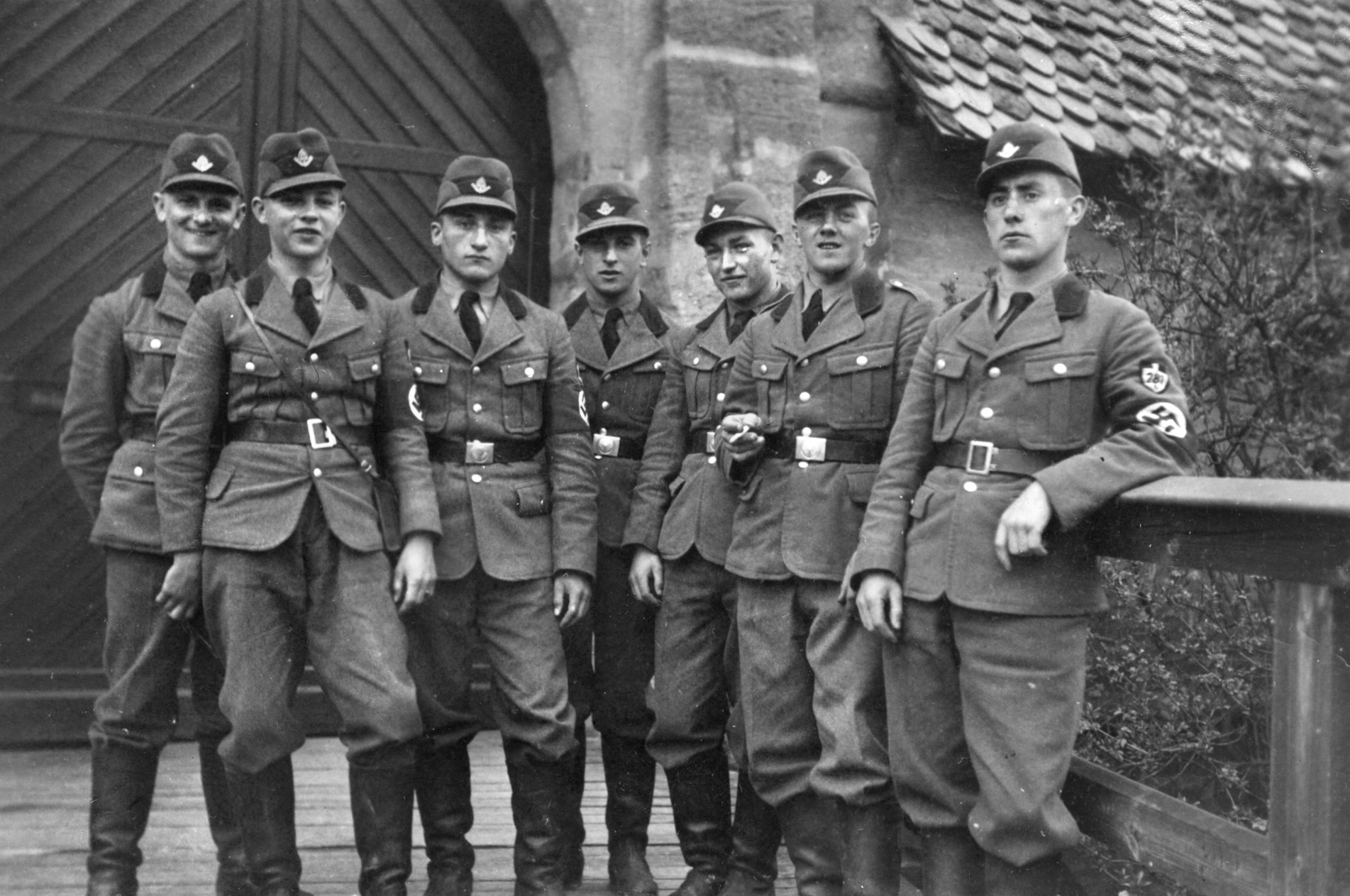
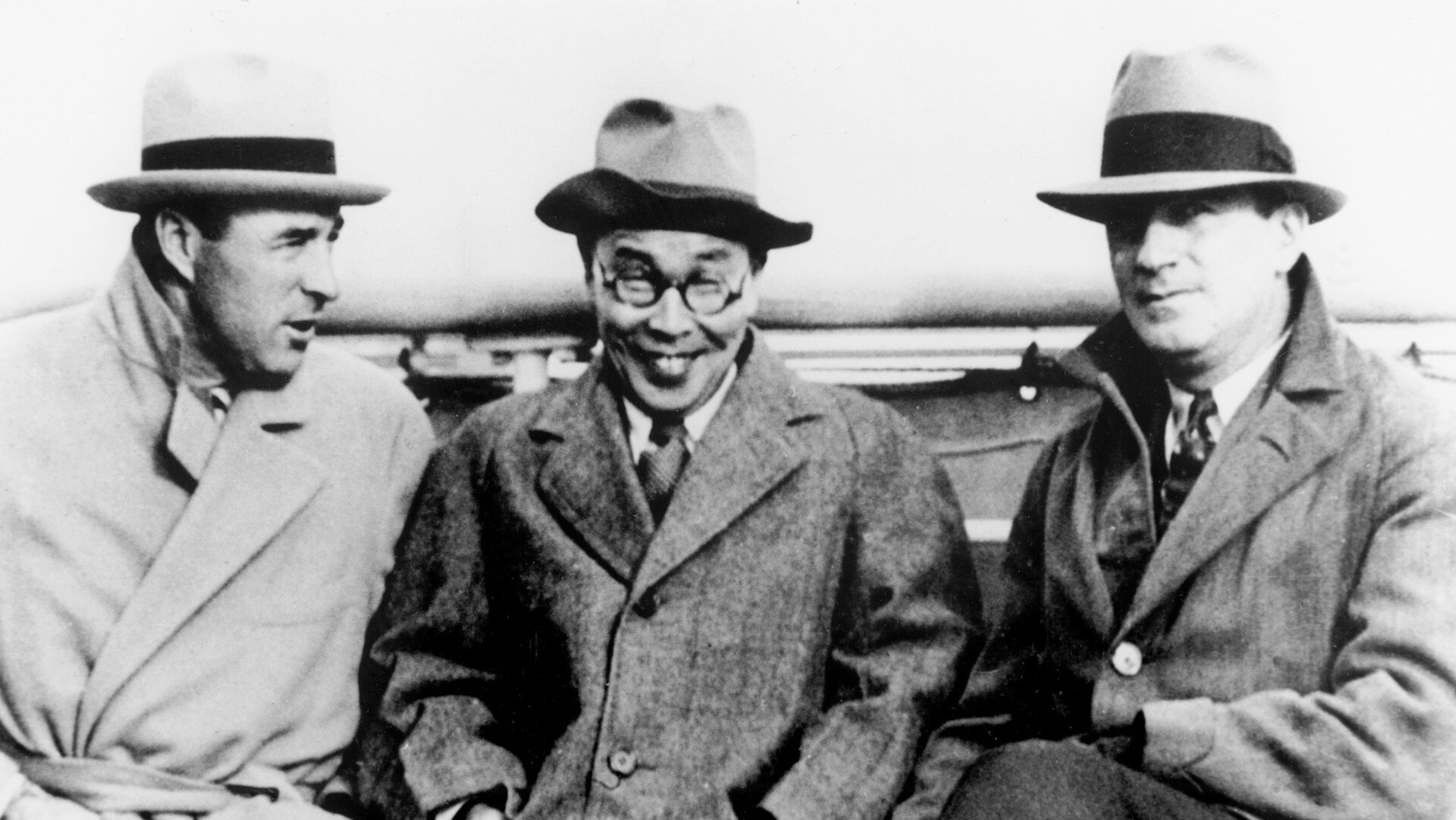
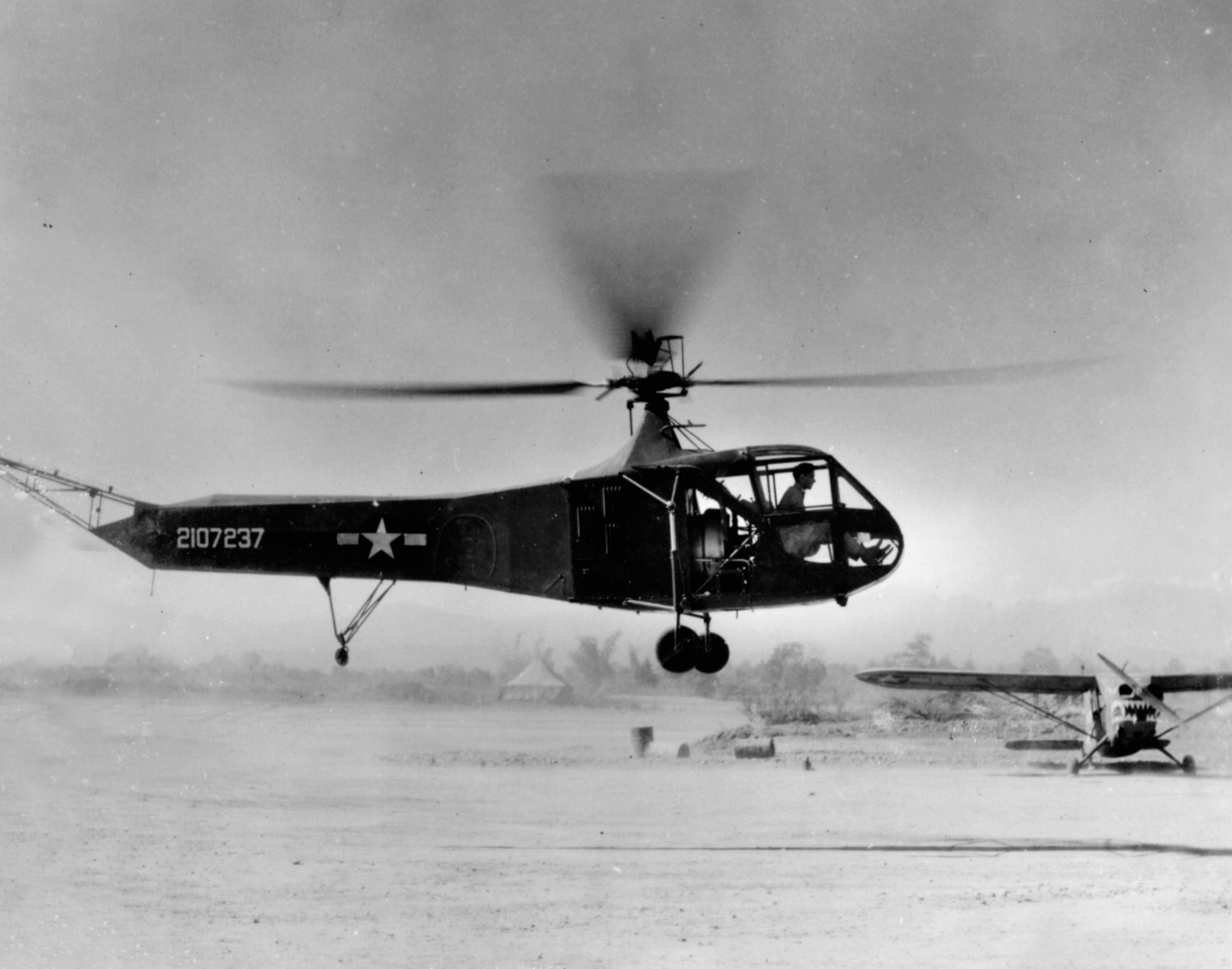
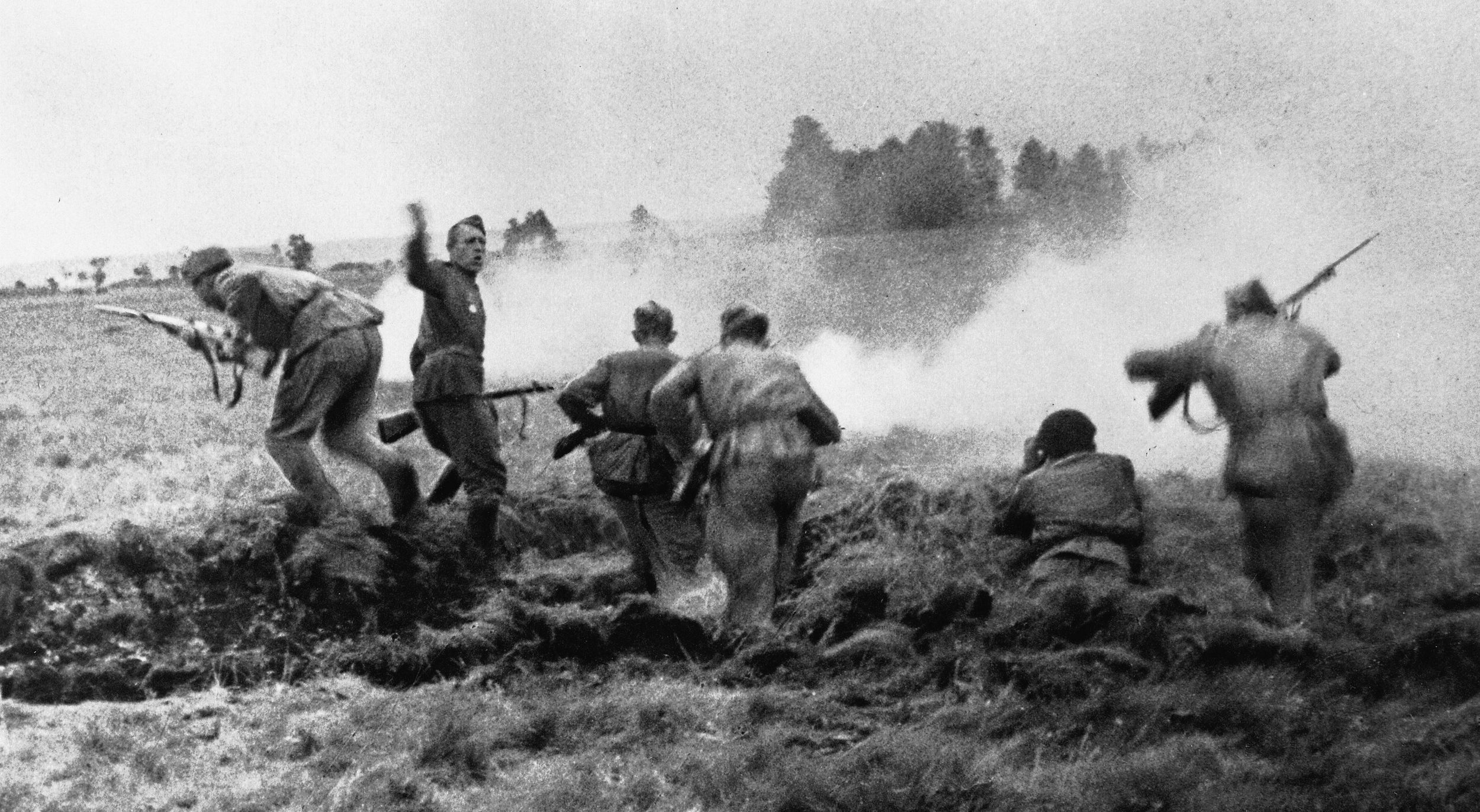
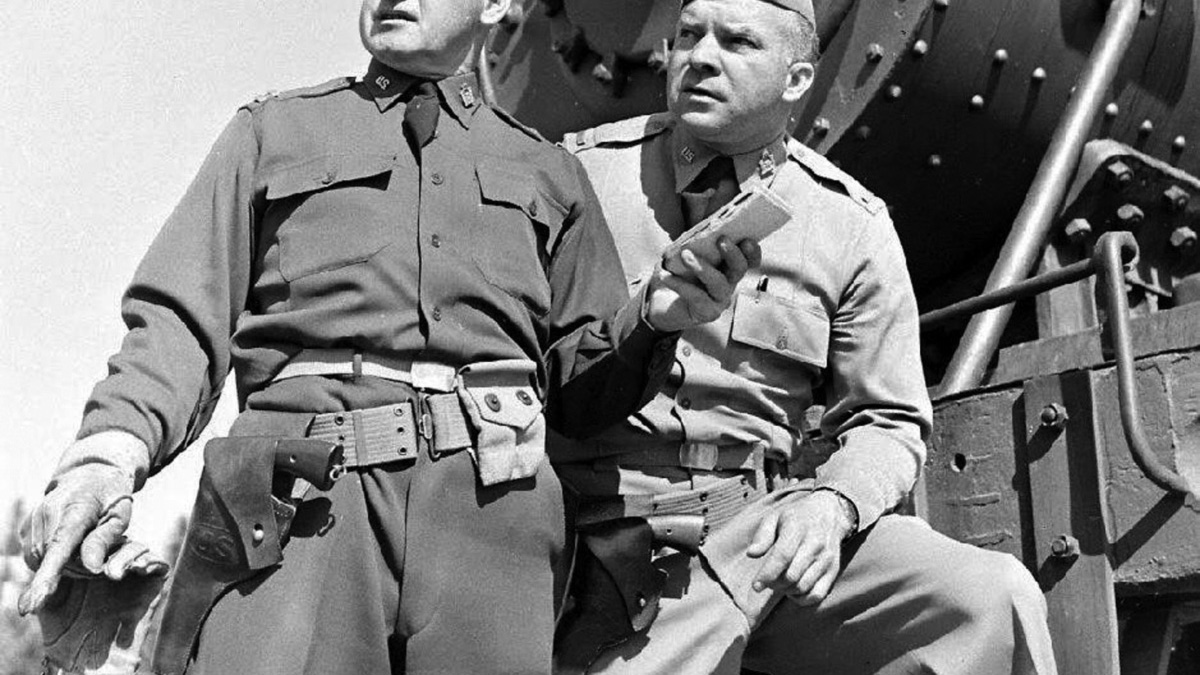
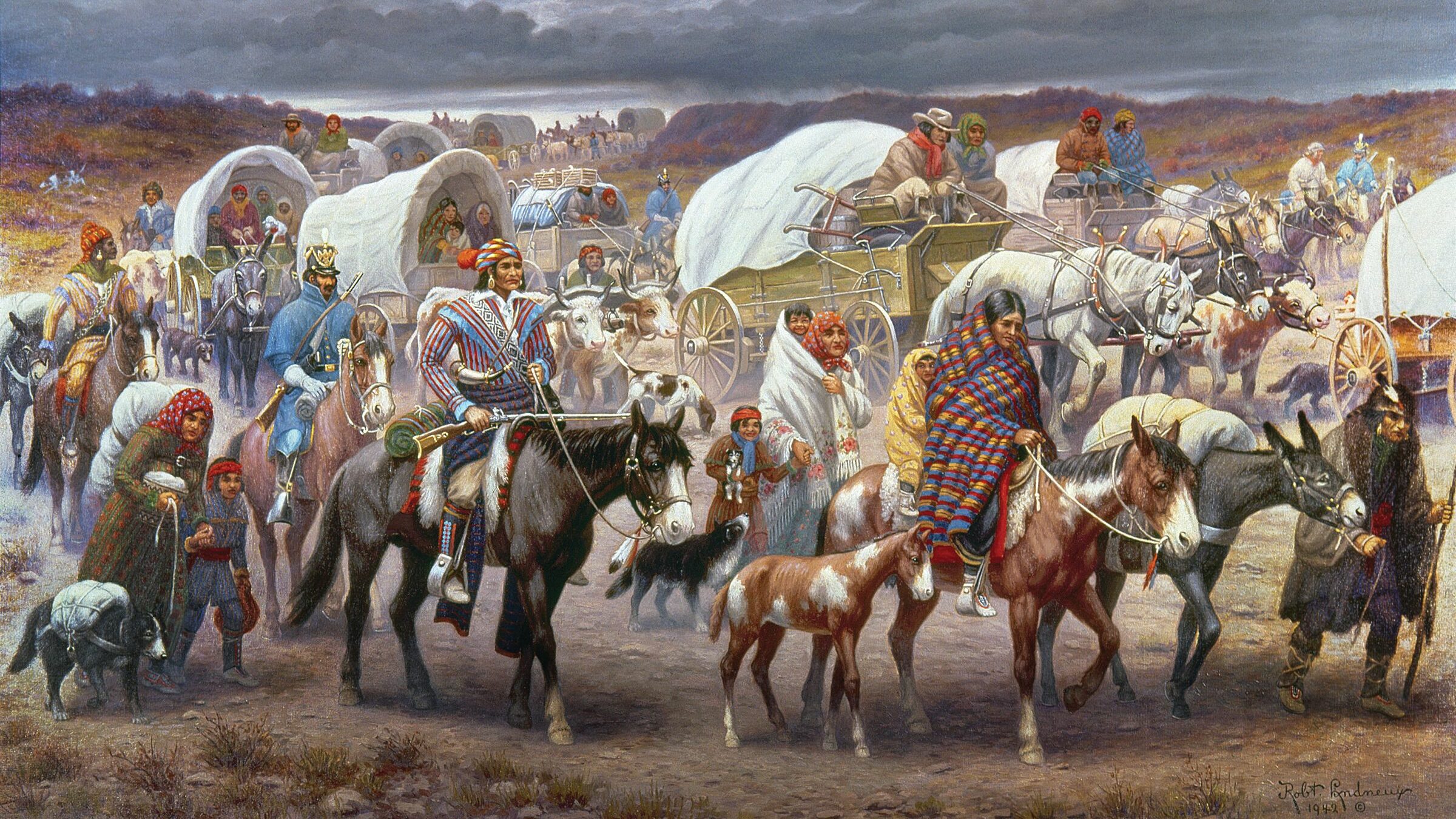
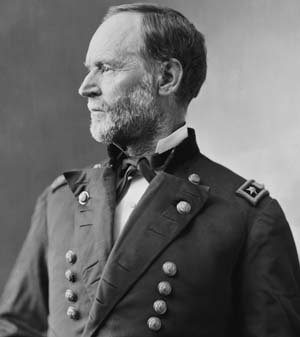
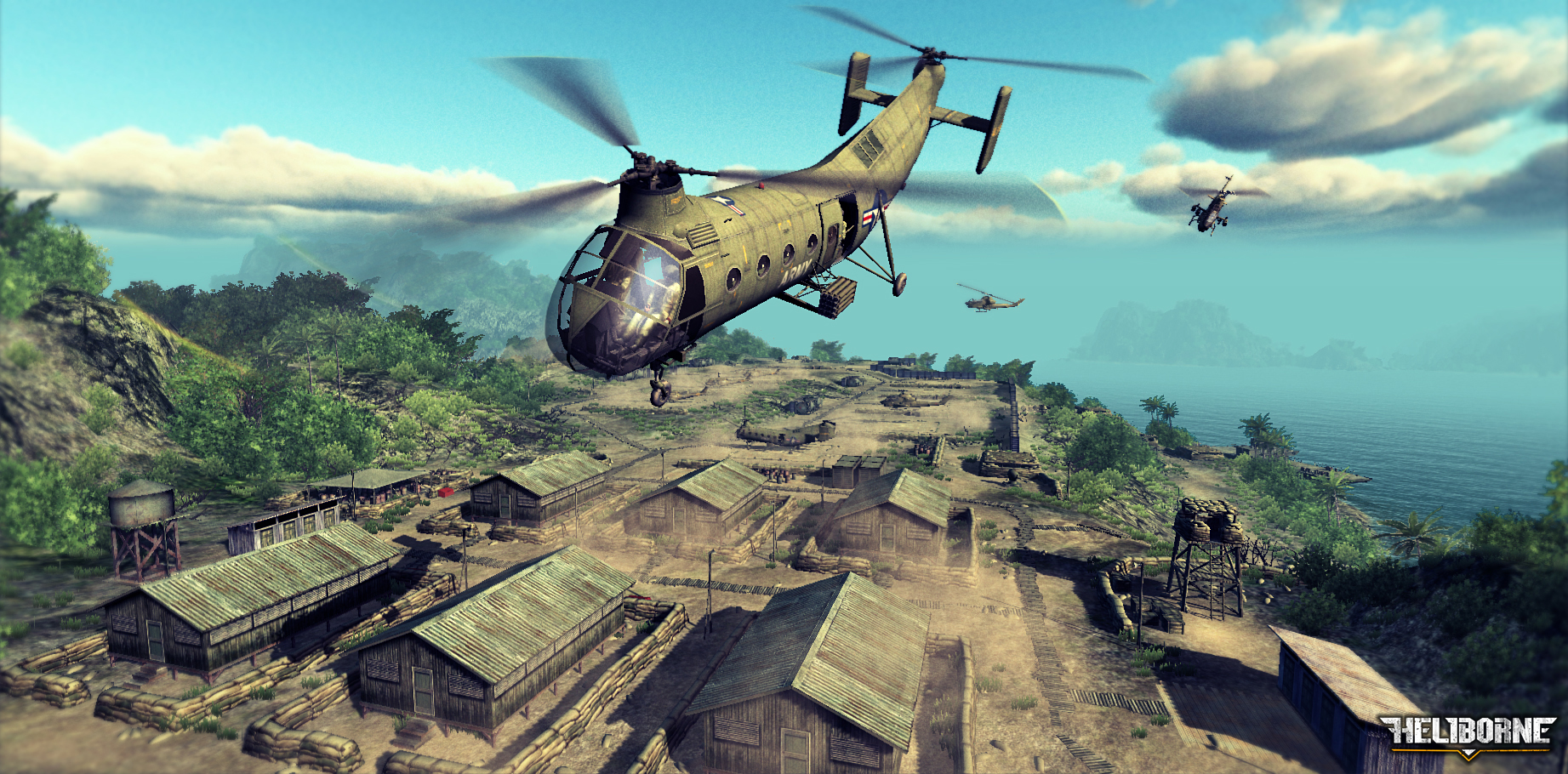
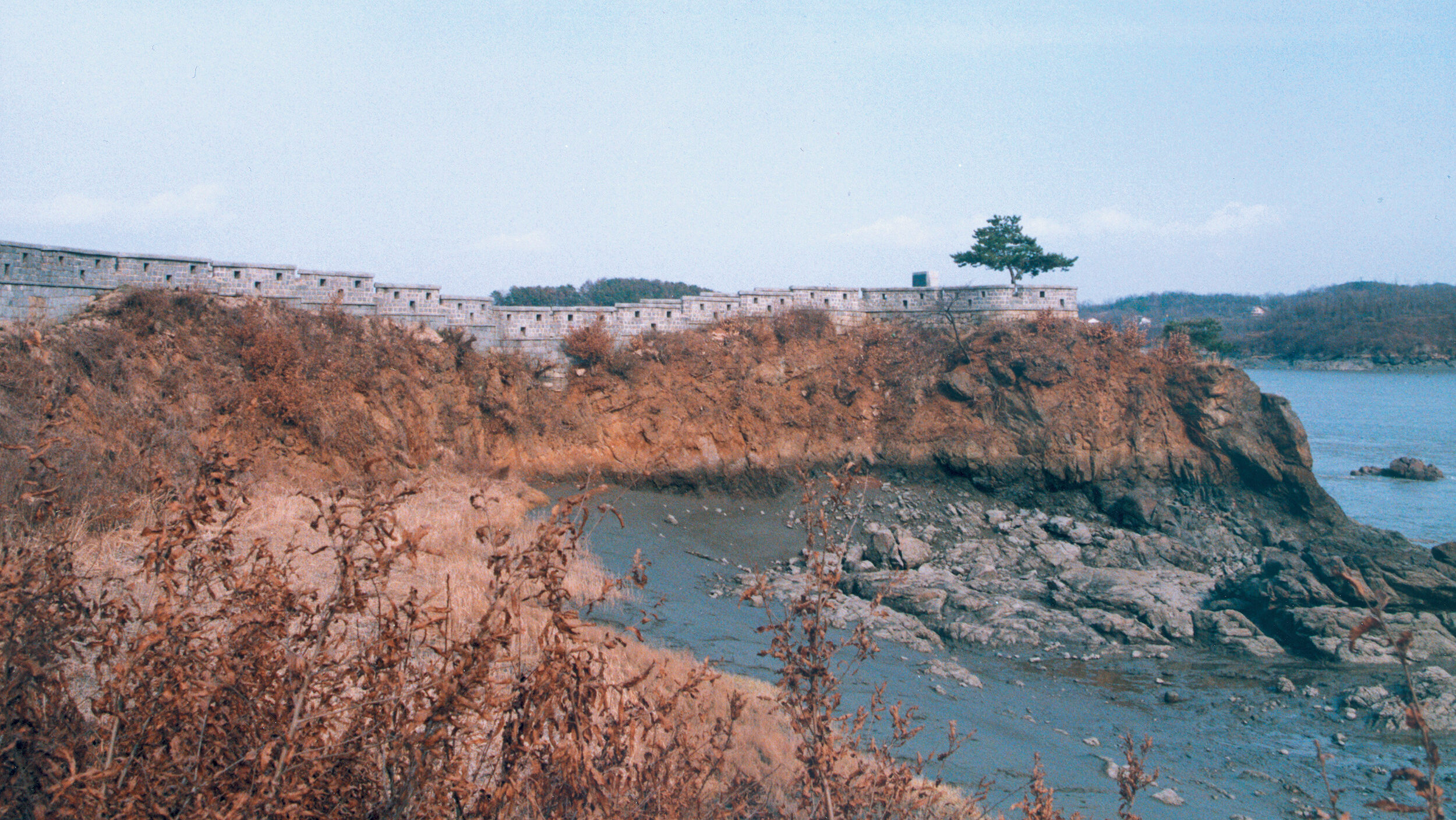
A sad story of a young man who thought he was doing something important, when he was under the influence of propaganda that made him think of Slavs as subhuman. The Nazi army murdered and raped and pillaged with what they thought no one would remember. When the Soviets invaded Germany, what happened to his wife and son? I hope nothing, but what the Nazis di in Russia is hard to forgive.
I know there are other opinions. What is yours?